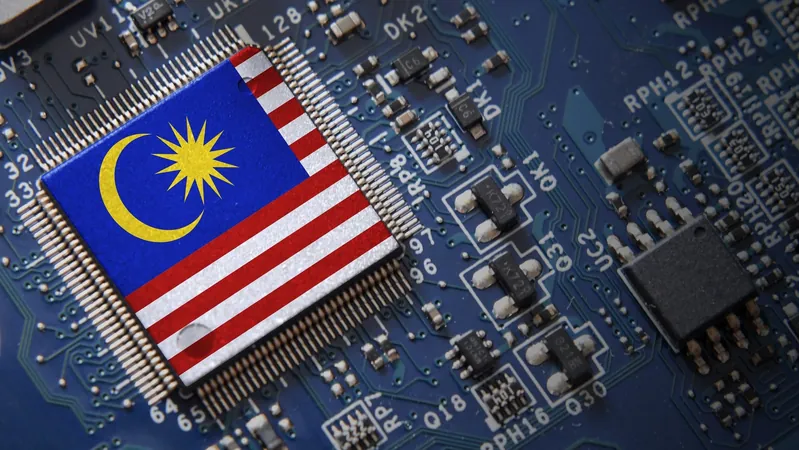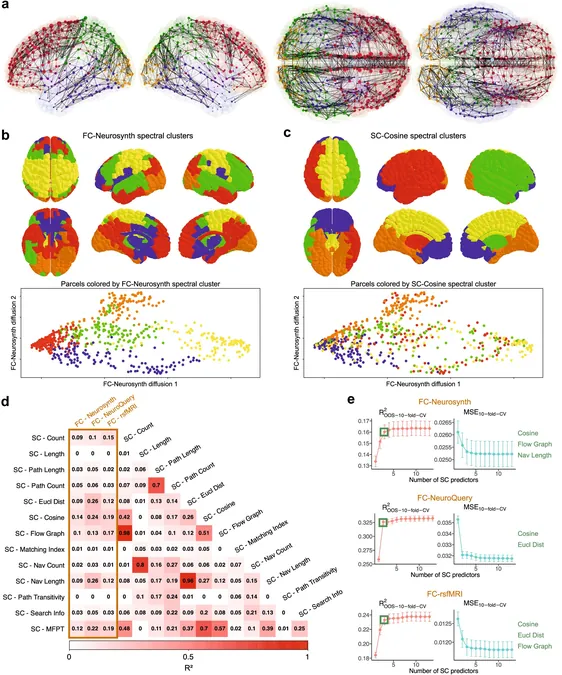
Malaysia's Ambitious Tech Transformation: Penang, Selangor, and Johor Lead the Charge in Semiconductor and Data Centre Expansion
2024-10-09
Author: Rajesh
Technological Renaissance in Malaysia
Malaysia is undergoing a technological renaissance, with an increasing demand for innovative solutions sparking a fierce competition for tech talent across Asia. As the nation positions itself to become a global tech hub, three key states—Penang, Selangor, and Johor—are at the forefront of developing the country’s semiconductor supply chain and data centre infrastructure to drive economic growth.
Penang: The Silicon Valley of the East
Penang, often dubbed the 'Silicon Valley of the East,' is pioneering Malaysia's semiconductor efforts. The state boasts over 50 years of expertise in the semiconductor industry, hosting more than 350 multinational corporations (MNCs). Penang's Chief Minister, Chow Kon Yeow, announced ambitious plans for the state to emerge as Southeast Asia's first region with a comprehensive front-end chip manufacturing supply chain.
"The future is about strategic positioning," Chow stated, alluding to the increased inquiries from companies amid the US-China competition, while emphasizing the need for selective partnerships that align with Penang’s ecosystem.
Malaysia's Global Semiconductor Ranking and Future Goals
Currently, Malaysia ranks as the sixth-largest semiconductor exporter globally, contributing 1% to the assembly, testing, and packaging market. However, the country has historically focused on backend operations. To change this narrative, Penang aims to draw US$115 billion in investments by 2030, specifically targeting frontend development. But to succeed, the state must enhance its infrastructure to cope with rising water and electricity demands.
Power and Water Infrastructure Challenges in Penang
A significant power transmission project is set to come online by the end of the year, increasing capacity from the mainland to Penang Island and supporting projected peak demands rising to nearly 1,000 MW. This upgrade is crucial as the semiconductor sector cannot afford power outages that could lead to immense financial losses.
Water supply, however, poses another pressing challenge. Since 2019, water demand has surged in parallel with the semiconductor boom, leading the state to allocate RM1.18 billion towards water infrastructure improvements to ensure sustainability through 2030.
Selangor's Technological Leap and Talent Shortage
In Selangor, the Klang Valley is also gearing up for a technological leap by bolstering integrated circuit (IC) design as part of a national strategy. The region is home to over nine million youths under 40, offering a fertile ground for innovation and tech entrepreneurship. The government plans to establish an IC design park each year for five years, targeting the creation of at least five tech ‘unicorns’ valued over $1 billion by 2030.
However, a significant shortage of skilled talent persists, with only 5,000 engineering graduates produced annually against a demand for 50,000 to meet industry needs.
Addressing the Skills Gap in Selangor
To tackle this skills gap, the government is focused on ramping up engineering outputs to reach 60,000 graduates within the next five years. Each IC Design Park will require 400 to 600 qualified engineers, emphasizing the urgency of developing a robust educational pipeline.
Johor's Data Centre Expansion and Sustainability Concerns
Meanwhile, Johor has emerged as another key player in Malaysia’s tech landscape, attracting numerous data centre projects. With over 50 applications for new data facilities—including ten already operational—the state is experiencing massive investments. Industry leaders like Asher Link of Princeton Digital Group have noted the rapid construction of essential data infrastructure, supported by governmental collaboration.
However, this data centre expansion is not without controversy. Local communities are raising concerns about the long-term sustainability of such projects, especially regarding energy and water use. Experts advocate for the adoption of green technologies, emphasizing the need for conscientious project implementation that prioritizes environmental protection and community health.
Government's Commitment to Balanced Development
Malaysian Investment, Trade, and Industry Minister Tengku Zafrul Abdul Aziz stressed the importance of balanced development across states. "It's crucial that we support all regions equally to foster positive competition that drives further investments in Malaysia," he stated.
Conclusion: Strategic Investments for a Technological Future
As Malaysia accelerates its journey towards becoming a global tech hub, the focus remains on strategic investments in technology and education—essential pillars that will underpin the nation's economic future for years to come. Stay tuned as we continue to follow the exciting developments in Malaysia’s technological landscape!





 Brasil (PT)
Brasil (PT)
 Canada (EN)
Canada (EN)
 Chile (ES)
Chile (ES)
 España (ES)
España (ES)
 France (FR)
France (FR)
 Hong Kong (EN)
Hong Kong (EN)
 Italia (IT)
Italia (IT)
 日本 (JA)
日本 (JA)
 Magyarország (HU)
Magyarország (HU)
 Norge (NO)
Norge (NO)
 Polska (PL)
Polska (PL)
 Schweiz (DE)
Schweiz (DE)
 Singapore (EN)
Singapore (EN)
 Sverige (SV)
Sverige (SV)
 Suomi (FI)
Suomi (FI)
 Türkiye (TR)
Türkiye (TR)